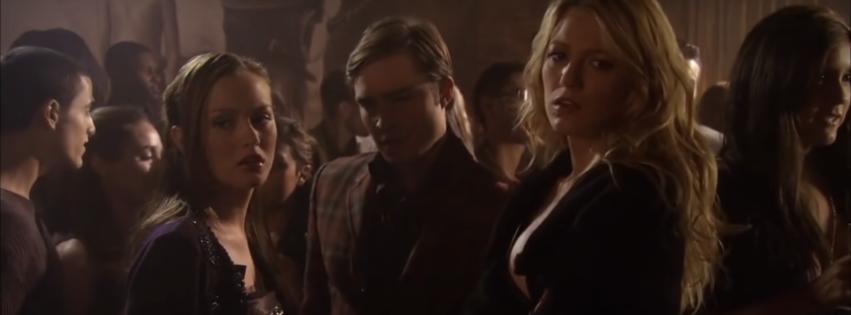Gossip Girl: How It Went From a Ratings Nightmare To A Network Darling
 Paul Dailly
at
.
Updated at
.
Paul Dailly
at
.
Updated at
.
Many don't know the history, but when Gossip Girl premiered in 2007, the ratings were not high, and several TV websites would not have been surprised if the show went the way of the flip phone.
It may have debuted with solid ratings in The CW's key demographics, but it was still seen as one of the network's weaker shows.
By the time the 2007 Writers Strike came around, Gossip Girl had produced just 13 out of 22 episodes for Gossip Girl Season 1. With the strike lasting over three months, no new episodes of Gossip Girl were produced.
The episodes the network had to air were slotted in randomly, with the show taking random hiatuses. The biggest break of all was from January until April when there were no installments ready for air.
The CW announced that five more episodes would be made to take Gossip Girl Season 1 up to a total of 18. But there was a catch.
In 2007, networks were starting to offer their shows online to give fans somewhere to catch up if they missed an episode. Because everyone was talking about Gossip Girl, The CW wanted their young viewers to watch the show live.
"For these next five weeks the epicenter of the Gossip Girl universe will be on The CW's broadcast television airwaves," said then network president, Dawn Ostroff as she announced the decision to keep future episodes from going online.
On top of that, the network announced the decision to air encores of the episodes on Sunday nights. Yes, I'm showing my age here. The CW actually used to broadcast on Sunday nights.
The network also kept the first 12 episodes of Gossip Girl Season 1 to allow viewers who had heard so much about the show to binge and get caught up on all of the latest developments for one of the TV's most popular shows that did not have high ratings.
But that was not to say Gossip Girl was leaving the online world behind. Instead, the network set up episodic recaps, interviews with the cast and crew, as well as competitions to keep people enthralled by the lives of the Upper East Siders.
The CW needed to find a way make a bigger profit off the show, and by having everyone and their grandmother talking about it, it would help solidify the show as one of the most talked about ones around.
The PTC, however, did not like Gossip Girl, and made that known during 2007 and blasted the show, while branding it the "Worst Show of the Week."
"The CW’s new teen drama Gossip Girl, which airs on Wednesday nights at 9:00 p.m. ET, takes all the foul content from The O.C. while stripping away any of that program’s redeeming features," said their review of the show.
The article blasted the portrayal of teens on the show but neglected to mention that it's rare for a teen drama to capture what it's like for a teenager in this day and age.
On top of that, Gossip Girl focused on the privileged kids who resided in New York's Upper East Side, so the reality was always going to be stretched to extremes.
"The depictions of teenage behavior in this episode were mind-blowingly inappropriate on any network at any time."
"This program exhibits Hollywood’s concept of appropriate behavior for youth. The show further promotes the hedonistic, irresponsible lifestyle that is captivating our country through pseudo-celebrities like Paris Hilton."
"For its careless portrayal of teen drinking, sexual conduct, and drug use, Gossip Girl is our pick for Worst of the Week," the article concluded.
With The CW trying its best to bring attention to the series, it decided to spin it into the type of press that it could use to promote the series.
Have a look at the poster below.
It finds Nate Archibald in bed with a much older woman on Gossip Girl Season 2 Episode 1 after embarking on a Summer affair in The Hamptons.
The "Mind-Blowingly Inappropriate" part is very clearly credited to the Parent Television Council.
This was the network's way of sticking the proverbial middle finger up at them and saying, "Look, we know you hate us, but thanks for the publicity."
It was a stroke of genius, and it kept the conversation going all through the Summer right up until the show returned with record ratings in key young women demographics.
Paired with One Tree Hill, it was almost like both shows were helping each other. Both were on the plus side as opposed to their previous seasons and made the young network a force to be reckoned with on Monday nights.
Obviously, the ratings were still not as high as the other four networks, but they were higher where it mattered: The younger demographics.
It's crazy, but back then, The CW was targeting Women 18-34, and shows such as Supernatural and Smallville were seen as expendable and were moved to Friday nights.
Like all hit shows, Gossip Girl started losing ratings ground as the years went on. It still rated well with females until Gossip Girl Season 4. But it started falling quickly when Gossip Girl Season 5 rolled around.
When the female focused dramas started to flat line, the network realized it was time to cater to both males and females 18-34, and that marked the end of Gossip Girl, and the network went on to launch its DC TV slate.
All told, Gossip Girl went from a ratings lull to a hit and part of that has got to be attributed to The CW's relentless promotion of it. With the Writers Strike, the show could have very easily disappeared.
But the network was not ready to give up, and it blossomed into a hit. It just goes to show what some relentless promotion can do to make a show a success. Will the same thing happen for Dynasty, which comes from the people who brought us Gossip Girl?
Time will tell.
Paul Dailly was an Associate Editor for TV Fanatic.Follow him on X.


















